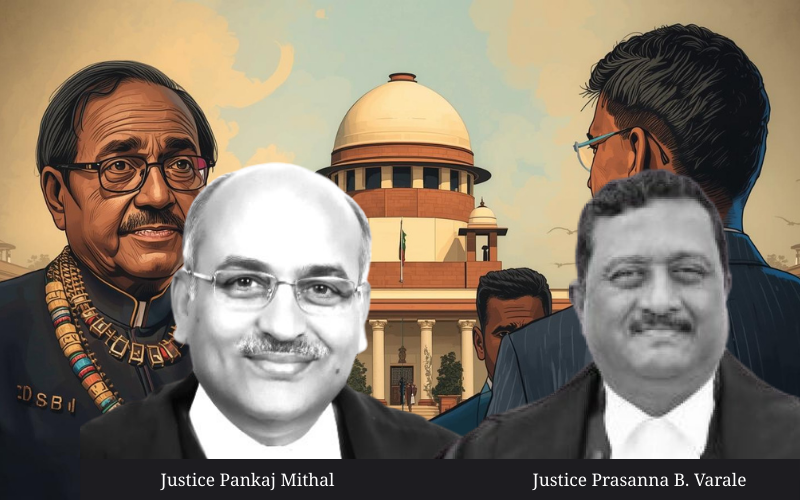The Apex Court emphasizes accountability and transparency in investigating officers amidst allegations of procedural irregularities and abuse of authority.
In a significant ruling on September 10, 2025, the Supreme Court of India upheld the decision of the High Court directing the registration of First Information Reports (FIRs) against two officers of the Central Bureau of Investigation (CBI), Vinod Kumar Pandey and Neeraj Kumar, amidst allegations of abuse of authority and procedural irregularities. The judgment, delivered by Justices Pankaj Mithal and Prasanna B. Varale, underscores the necessity for independent investigation and accountability within law enforcement agencies.
The case, Vinod Kumar Pandey v. Seesh Ram Saini, arose from writ petitions filed under Article 226 of the Constitution, seeking directions to register FIRs against the CBI officers for alleged offences under several sections of the Indian Penal Code (IPC), including 218, 463, 465, 469, 166, and 120-B. These petitions were initially decided by the High Court in 2006, which ordered the registration of FIRs based on prima facie findings of cognizable offences, despite a preliminary inquiry by the CBI suggesting otherwise.
The Supreme Court's decision dismisses the appeals against the High Court's directions, reinforcing the importance of conducting an independent investigation into the allegations. The court emphasized that public confidence in the justice system requires accountability from investigators themselves, especially when allegations involve abuse of official position and authority.
The judgment also clarifies that a preliminary inquiry is not mandatory for FIR registration if the information provided discloses the commission of cognizable offences. The inquiry report, conducted by the CBI, was deemed insufficient to conclusively determine the absence of a cognizable offence, highlighting the role of the Constitutional Court in ensuring justice through its discretionary powers.
This ruling marks a pivotal moment in judicial oversight of investigative agencies, reaffirming the principle that justice must be seen to be done. It acknowledges the necessity for transparency and accountability, ensuring that even those who investigate must sometimes be investigated to maintain public trust in the legal system.
The Supreme Court's decision not only upholds the High Court's directive but also sets a precedent for handling similar cases involving allegations against law enforcement officers. The court directed that the investigation be conducted by an officer not below the rank of Assistant Commissioner of Police, ensuring impartiality and adherence to legal protocols.
Vinod Kumar Pandey v. Seesh Ram Saini, (SC) : Law Finder Doc id # 2776627




